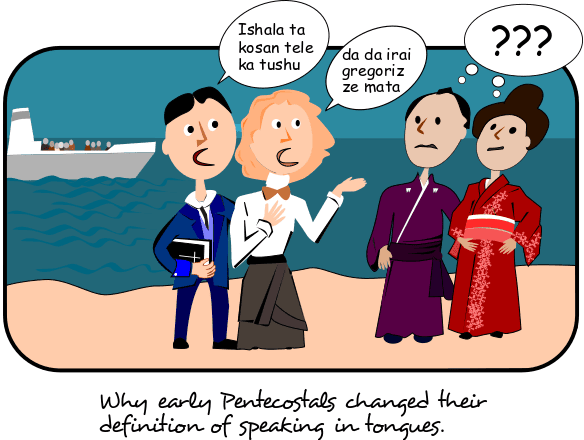A history of Pentecost being the miracle of one voice emitted and the sounds converted into a relevant human language while in the air or in the minds of the hearers.
This theory was a part of the christian doctrine of tongues that existed at least in the third century, worked its way into the seventh, and has a spotty appearance after this time.
The following is the result of collating, compiling, examining, researching and comparing a wide-range of Patristic authors, a sampling of Jewish literature, and a small dose of classical Greek writings found on the topic.

